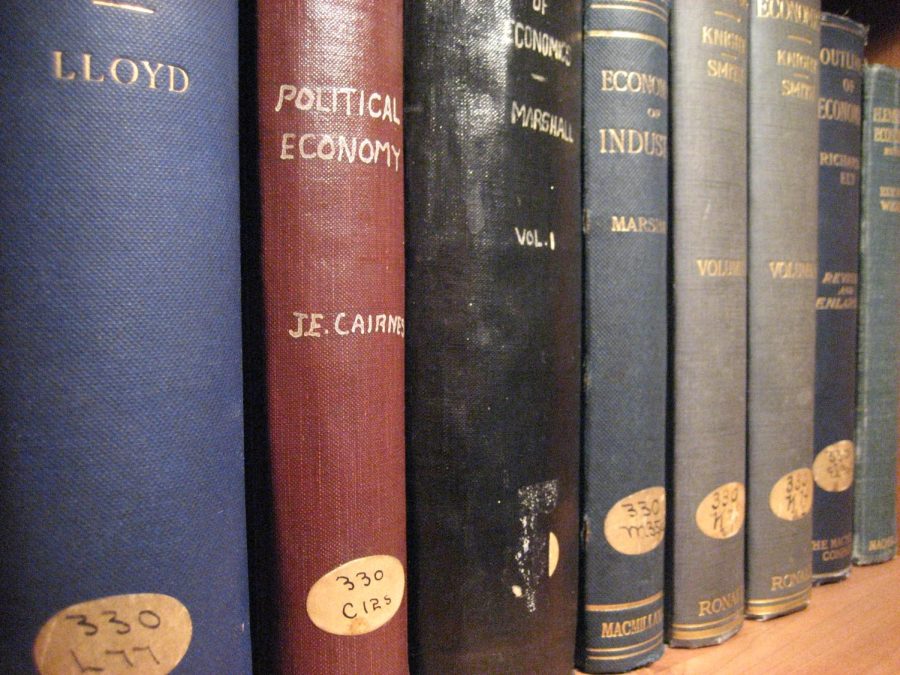Letter to the Editor | American universities should reconsider how economics is taught
Courtesy of genericface / Flickr
A collection of economics textbooks from the turn of the century. Former opinions editor Andrew Prozorovsky reflects on his time as an economics major at UI, and how the study of economics is prone to bias and encourages individualism. This indicates a need to reevaluate how the subject is taught in schools.
Apr 13, 2023
I recall two impactful titles that inspired me to study economics when I arrived at the University in 2018: Adam McKay’s film “The Big Short” and Robert Kaiser’s book “Act of Congress.” Both works left me stunned by how little the general public may actually understand about economics.
Once you study economics, it’s even easier to understand less. There is a semi-common adage in economics: All models are wrong, but some of them are useful. Economics, while an important field of study, hinges on a number of assumptions underlying all models. Beyond that, political biases and personal philosophies about human nature permeate the field.
It’s perfectly natural, but economics departments should be sincere about what is being taught. At the University, it depends on the class, but it will most likely be “freshwater economics,” also known as classical economics, the more conservative school of thought that the University of Chicago and Milton Friedman are famous for.
At Harvard, one is more likely to absorb “saltwater economics,” also known as Keynesian economics, the more liberal school of thought. But both generally respect the principles of free market capitalism.
If you’re my uncle, who studied economics in Soviet-controlled Czechoslovakia, your curriculum probably was quite different.
Get The Daily Illini in your inbox!
Economics is a complicated field, but academia should be more honest and critical about the inevitable political nature of the field. At Illinois, I had professors whose lectures subtly reflected political biases, and there were many less-politically-inclined students who were unable to discern the fundamentals from their personal philosophies. A diverse range of economic analyses must be presented.
Some studies indicate that American economics students graduate as less cooperative, more self-interested members of society, especially those who specialized in game theory. These studies alone should oblige us to consider whether American economics education is being taught effectively. Studies like these can leave some economics students disillusioned.
Luckily, economics is always innovating. Newer theories like the doughnut theory may fundamentally challenge important assumptions in the field, like the idea that an economy should always pursue growth.
I love my field of study and those who dedicate themselves to it — but the field is not without its shortcomings. American economics academia is rigorous and empirical, but it depends on human behavior, and sometimes that human element can be lost among all the numbers. Its approach needs some critical reforms and students deserve to know honestly with what material they are engaging.
Want to send a letter to The Daily Illini? Submit a letter through this form. Note that we reserve the right to edit for AP style formatting or reject any contributions.






